
ALL I could do was wait for three weeks of incubation after the fourth egg of the first clutch and then check regularly afterward. I enriched the food with small and medium-sized crickets and frozen pinkies. I also got a large bucket of stable manure which I threw on the ground to attract flies. With the same purpose, I deposited dead mice, fish and meat waste, and fruit scraps in a bucket that I covered with mesh. To be sure of enough flies, I bought fresh maggots that I threw into the bucket. What people will do to achieve success! But the flies arrived quickly – lots of them – so the bee-eaters had a feast.
After waiting for three-and-a-half weeks, I couldn’t hold back my curiosity and had to look. There should already be chicks, or dead-in-shell. I’d had some disturbing messages from birdkeepers who told me that breeding in a nest-box would not be possible due to too low humidity and too high temperature. Even with fertilized eggs, the chicks would die prematurely, they advised. When I took the lid off the box, the brooding bee-eater was so shocked that it took off and flew away. Unfortunately, one egg was damaged by this. However, a quick check showed me that all (seven!) eggs (of probably two females) seemed to be fertile.
Denne historien er fra October 23, 2019-utgaven av Cage & Aviary Birds.
Start din 7-dagers gratis prøveperiode på Magzter GOLD for å få tilgang til tusenvis av utvalgte premiumhistorier og 9000+ magasiner og aviser.
Allerede abonnent ? Logg på
Denne historien er fra October 23, 2019-utgaven av Cage & Aviary Birds.
Start din 7-dagers gratis prøveperiode på Magzter GOLD for å få tilgang til tusenvis av utvalgte premiumhistorier og 9000+ magasiner og aviser.
Allerede abonnent? Logg på
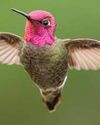
The World's Best-Known Hummingbird?
Intensively studied, the gem-like Anna’s hummingbird is a welcome visitor to the gardens of America’s most populous state: California. Bill Naylor investigates its life history
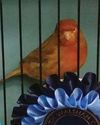
The charm of the English Cinnamon
Despite its long and complicated history, the true Cinnamon canary is still with us – in the hands of a tiny group of breeders. DONALD SKINNER-REID reckons it deserves wider appreciation
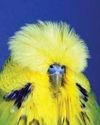
Spangles: a personal overview
FRED WRIGHT relates a budgie story of over-exploitation, consequent problems and abundant potential for the future

New converts to old breeds
Old and rare canaries have a reputation for adding fresh interest and challenge to the hobby. PETE HOOK and NICK JOY agree, and explain the birds’ charm to Dave Brown

Themed aviaries are a hit with the public at annual Stafford show
DECORATIVE AVIARY DISPLAYS from a CBS and an online bird keeping advice group were voted in the top three by visitors for the inaugural Stafford Aviary Competition.
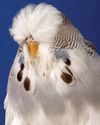
Pieds with potential
More than just a lesser variety, the dominant pied will introduce challenge and change into most studs, reckons CLIVE WAKEMAN. Here he discusses pairings to try and others to avoid
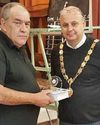
Club News
Welcome to the club and show pages – the bit that’s all about you Results: convention, specialist & rare and Breeder of the Year
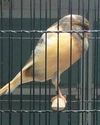
Canaries Month by Month:
With Christmas around the corner, BRIAN KEENAN is well into his winter programme, and reckons he might deserve a nice outcross
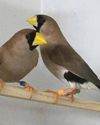
Smart Choice, Docile Nature
Dave Brown welcomes the masked grassfinch to his birdroom and shares advice on this lovely Australian species
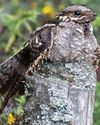
The truth about the ‘flying toad'
Odd local names and weird superstitions can’t hide the beauty and elegance of the nightjar, a species that has made a fascinating subject in a few zoo collections, reveals BILL NAYLOR